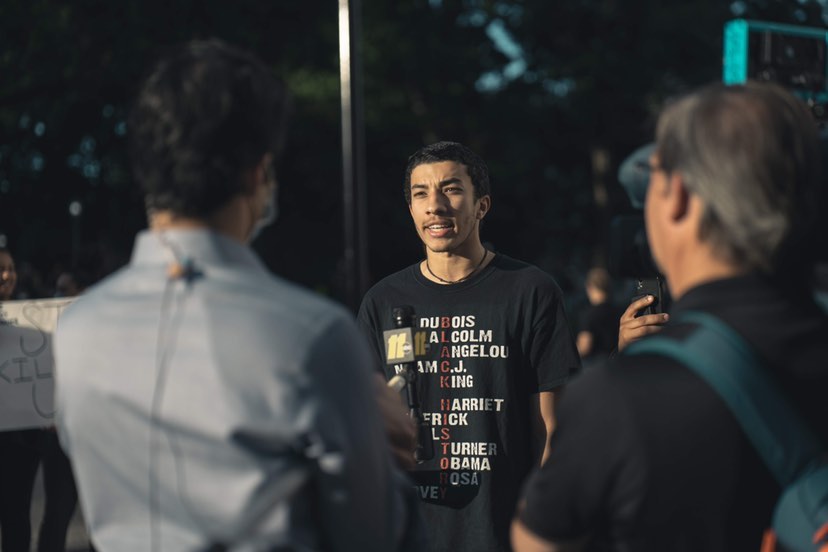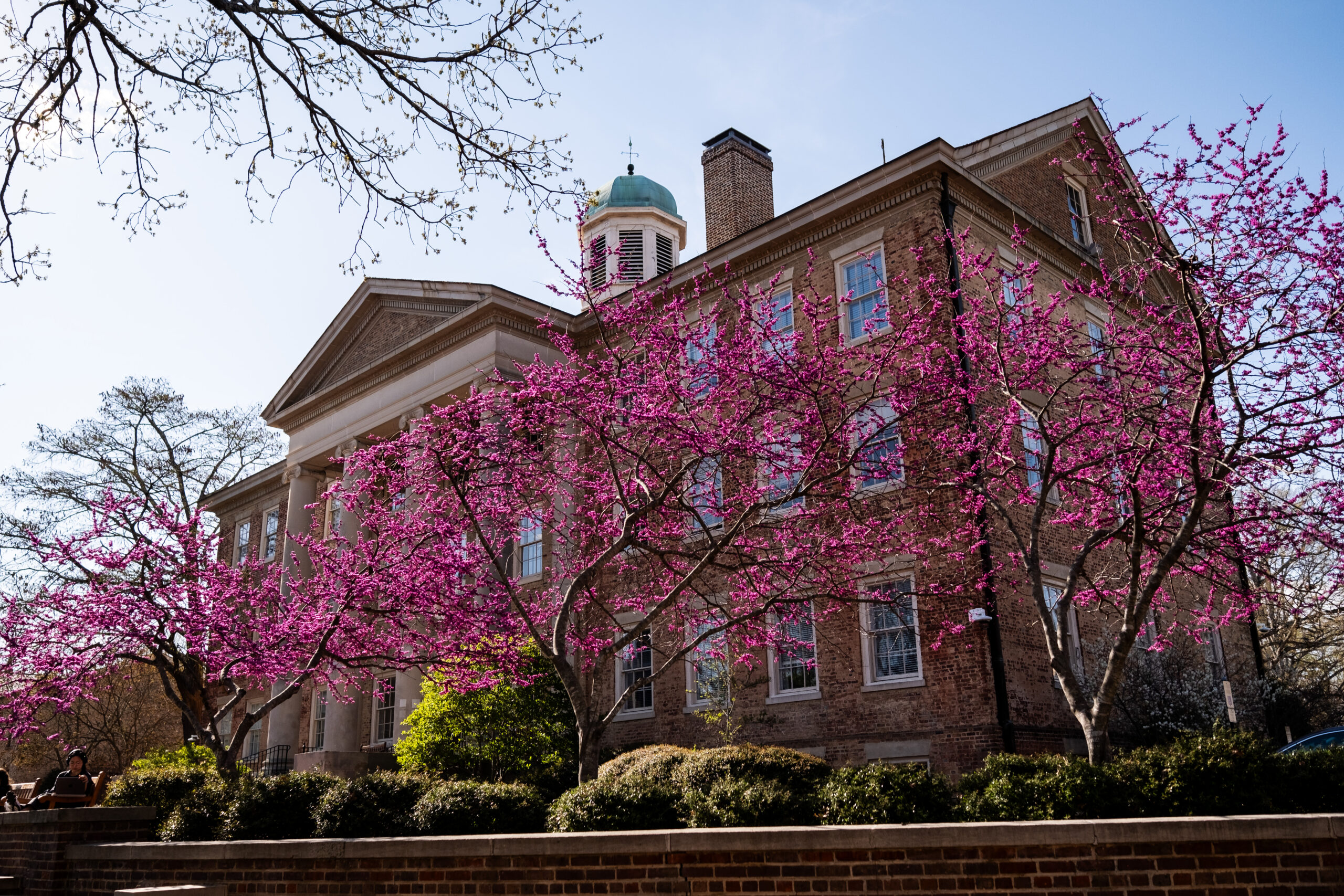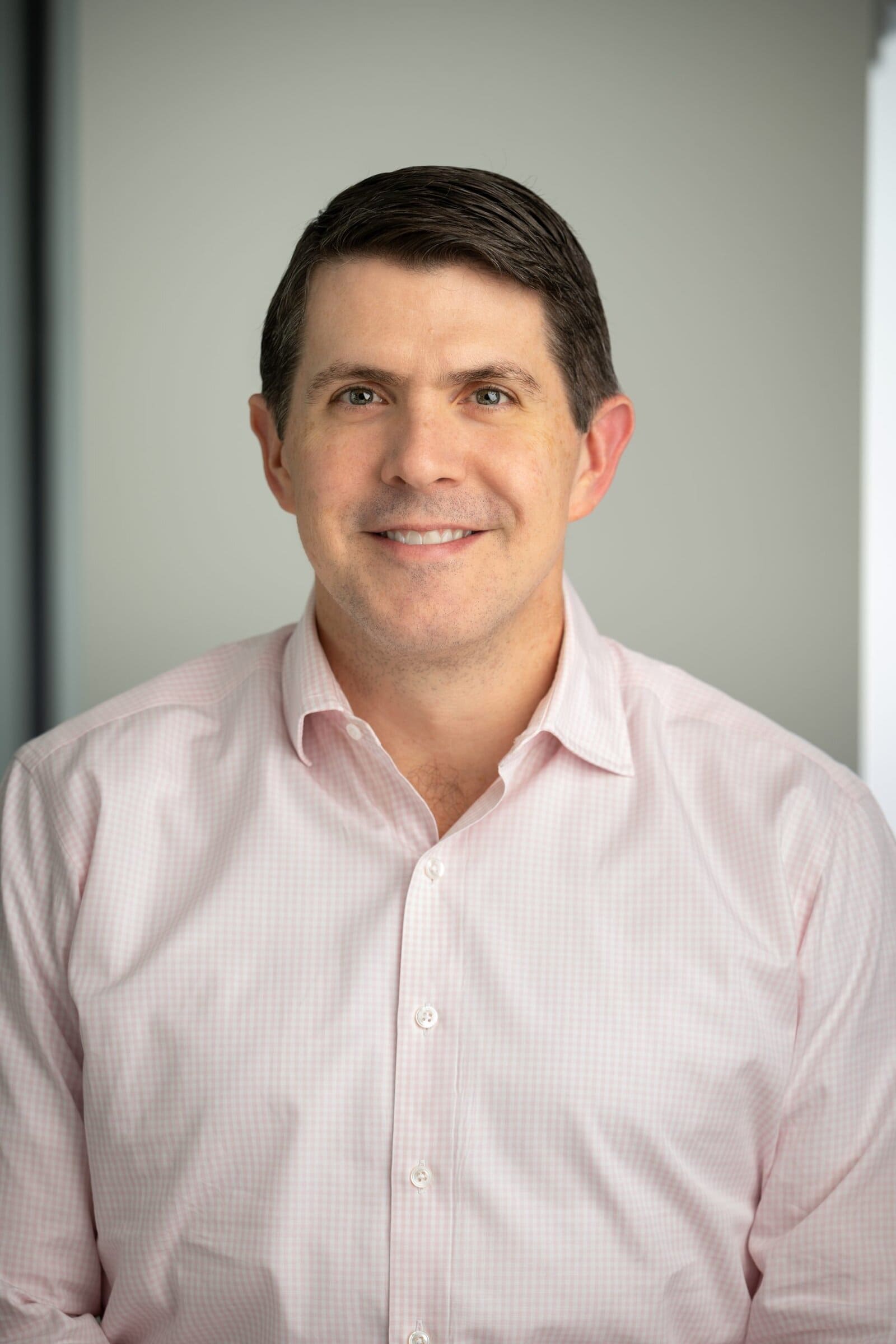
For our second episode of our two-part series on civic engagement, we spoke with Greear Webb ’23 of Raleigh, co-founder of Young Americans Protest (YAP!) and the NC Town Hall.
At Carolina, the scholar serves on the Commission on Campus Equality and Student Equity and as co-chair of the political action committee for the Black Student Movement (BSM) at UNC-Chapel Hill. This summer, Greear was selected by Harvard University’s Graduate School of Education to participate in the Making Caring Common program as a Voter Mobilization Ambassador.
If you haven’t already, you’ll want to catch our previous episode on voting, featuring John Sides ’96, a political scientist at Vanderbilt University and a publisher for The Monkey Cage via The Washington Post.
Music credits
The episode’s intro song is by scholar Scott Hallyburton ’22, guitarist of the band South of the Soul.
How to listen
On your mobile device, you can listen and subscribe to Catalyze on Apple Podcasts or Spotify. For any other podcast app, you can find the show using our RSS feed.
Catalyze is hosted and produced by Sarah O’Carroll for the Morehead-Cain Foundation, home of the first merit scholarship program in the United States and located at the University of North Carolina at Chapel Hill. You can let us know what you thought of the episode by finding us on social media @moreheadcain or you can email us at communications@moreheadcain.org.
Episode Transcription
(Sarah)
So first off, how are you, and how are you coping with all of this? For our listeners, we’re recording the week that Carolina announced all undergraduate instruction would shift to remote learning. Greear, I understand you’re in Raleigh, and have been remote since the start of the semester, is that right?
(Greear)
That’s right, all of my professors decided ultimately to shift their classes online. And so obviously, it’s not the start to the semester that I was hoping for or really wanted, but doing the best that I can with what I’ve got right now.
(Sarah)
Well, it seems like you’ve had a very busy summer. Can you share some of the work you’ve been doing locally, including the Raleigh Demands Justice event and how all that came together?
(Greear)
Yes, sure. So Raleigh Demands Justice came on the heels of the horrific murder, the public murder of George Floyd. And we really felt like we needed to do something here in the capital city of North Carolina. So we stood in solidarity and reached out to organizers in Minneapolis, Minnesota, and other cities, Chicago and New York, and did kind of a virtual meeting.
And then we launched right into it. Within a few days of the murder and all of the public outcry surrounding George Floyd, we hosted a peaceful protest and a five thousand strong march in downtown Raleigh. So I was proud to be one of the organizers of that. And there were many fellow youth that helped organize that march.
It was very empowering and inspiring, of course, [due to] such an unfortunate circumstance. But we really wanted to push for change and show that we were strong and unified here in North Carolina in standing with Minneapolis. After Raleigh Demands Justice, that initial march, we continued to keep the pressure up on our local officials here in Raleigh, even turning our attention to some statewide officials.
And even today, we continue to press for certain policies when it comes to police transformation and keeping our community safe. I was able to do that as part of my role as co-founder of Young Americans Protest, which started after the North Carolina Town Hall, an event back in 2018 that some students in my county created to really address why students were not included in the conversation surrounding gun violence and school shootings.
So after that event, we worked with some community leaders, with some other students, with some teachers even, and really thought about what would be the best way to continue advocating. Alongside two friends of mine, we co-founded Young Americans Protest and are continuing to give youth that voice in politics today.
(Sarah)
Can you take us into that process for a bit and just how that collaboration takes place at the local and regional level, and then even in partnering with other groups across the country?
(Greear)
Sure, so how it works at the local level first is really just building community and establishing those relationships and continuing to engage, continuing to have constant discussion about what needs to change, what needs to be done, and making things personal.
I always try and add the personal touch and ask people to really reflect and think about, what would you do if the person in this unfortunate circumstance, an unjust circumstance or violent circumstance, was someone that you knew or someone that you were related to? How would you act? What kind of action, what kind of justice would you like to see and go from there? And so building that community is so important as well, being able to establish relationships here with those teachers, with pastors, with those who are in elected office and really say, “Hey, I want to make a difference. I may not be in elected office, but I want to do my part as a community member to be civically engaged and active.”
That’s that first step. And so that’s what it looks like at the community level for me, locally and for many of my peers. Now when you talk about the national level, when you talk about collaborating with other cities and specifically other states in the United States, we really have to think about the different dynamics that are at play.
For North Carolina, of course, it’s not only a political battleground state, but it’s also a very diverse state with the largest Native American population east of the Mississippi River. We have a pretty strong population of black folks here in the state. And so to understand that all of that plays into activism and organizing, and understand how communities work, is super important.
So we took lead and consulted with other organizations, mainly through social media. We had people reach out to Young Americans Protest and say, “Hey, this is what worked here. This is what didn’t work.” And we went from there. And so, again, that was collaboration with other cities in North Carolina, but also other states that reached out to us and said, “I saw this on social media. How would you advise that we do this? And how would you advise us that we act in a way that will actually lead to change?”
A lot of folks now are taking on this phrase of “performative activism” and that’s being thrown around a lot. That’s going to marches, going to protests or speaking up, posting on social media, posting cool pictures at a protest and then never really following up, and kind of disappearing after that May 30th date of the massive protests around the nation for George Floyd. We want to enact things that lead to lasting change, and so that’s where collaboration and building that community really comes into play.
(Sarah)
Now, knowing that anything can happen and thinking about the takeaways from the summer with what worked well and what could perhaps use some refining, how are you thinking about your activism work for what may be ahead?
(Greear)
That’s right. I mean, you hit it right on the head. Anything can happen and there are many variables, many things that shift and that will shift and change as we move closer to November and even beyond. And so the way that I think about it, again, is just cultivating those relationships and following up.
The follow up is important and that’s why timelines are also important. When you talk about activism, when you talk about not only organizing, but wanting to see a visible, tangible change, you’ve got to put a timeline on it. And so that’s what we did. We had a list of demands here in Raleigh when it came to police brutality and police accountability. We really didn’t want to just reform the Raleigh Police Department, but we wanted to transform the Raleigh Police Department, and give a new role and a new vision for community safety here and one that could be modeled across the state.
We had about seven demands. We had a timeline for some of those demands. Some of the timelines were met, and some of them weren’t. We had to regroup and follow up. And so I’m proud to say we have seen some change here at the local level by our city and county leaders. But we’re looking for more. And so the way that we’re going to do that, especially in these times of a global pandemic, we’re really going to have to use social media and virtual advocacy to follow up.
We have already seen letters that have been sent by local leaders to state legislators asking for certain powers. We have the creation of a Raleigh police advisory board, which is a plus.
So as we begin to see this change occur, we have to make sure that we keep our eyes on the prize, which is complete and total justice, and that we continue to give these people in positions of great power deadlines and timelines so that we can have our solutions and our demands met.
(Sarah)
Now all of this, of course, goes hand-in-hand with your work this summer as a voter mobilization ambassador through the Graduate School of Education at Harvard. What else have you learned so far, and how have you been able to implement that knowledge and skillset in encouraging other young people to get out to the polls this November?
(Greear)
Yes, Harvard’s Making Caring Common Voter Mobilization and Civic Engagement Program has really been a great opportunity, and I am thankful for the opportunity to have been selected and to work with many of my peers, a few even at the University of North Carolina at Chapel Hill, to really become those community leaders as we head up to the election of November 3rd.
That program wrapped up at the end of August but it involved many speakers. We’ve had people that served as communications experts for President George Bush, for President Bill Clinton and Hillary Clinton. We’ve had people that worked with Stacey Abrams at her Fair Fight campaign to protect people’s votes. We’ve had people that worked in the Obama White House come and really speak to us about what it means for youth to lead the charge when it comes to voter mobilization and getting our communities energized. I mean, there’s a common phrase out there and it just says that “the youth will lead.” And that is so true. And this Making Caring Common program in putting humanity first has been a great first step for that.
So along with the speakers, who gave us their expertise each week, we’ve been able to also speak with each other again across the nation, about 100 hundred other youth, and be able to really discuss and break down strategy and what we’re going to do moving forward, also in the age of the coronavirus. But what we’re going to do virtually and in person is to make sure that every vote gets counted this November.
(Sarah)
Is there anything else you’d want to pass along to Morehead-Cain Scholars and students at Carolina with what people should consider doing this fall to be more civically engaged in general? What are some things they can definitively do, whether online or in person?
(Greear)
Sure, I would definitely say that anyone can do it, anyone can lead, anyone can inspire their community. I don’t have all the answers. Nobody has the perfect solutions when it comes to activism or when it comes to speaking up and using your voice for good. But if you always center on people, and doing what’s right and what’s best to elevate people and their value and their mission and their goals, that is where true success comes.
Building those relationships and building that community, like I talked about, is super important, as well as just believing in yourself and being willing to reach out and ask for help. I know I have, and I certainly encourage others to go to those who have gone before you, those who may be experts in the field, even those just in the community that may have an opinion but may not be willing to speak up or may want to talk with you one-on-one and say, “Hey, I like how you’re doing this, but I wish you’d go about this in a different way,” or “Hey, here are just my ideas in general on this issue,” and really taking those to heart and believing in yourself and believing in the power of help. And being able to use everything within your means to go and make change, and being courageous.
It’s definitely tough sometimes. It’s certainly draining, especially when you look at cases like George Floyd, Breonna Taylor, Ahmaud Arbery, when you look at race in general, just knowing this country’s historical background, it is draining. So I also encourage people to take time for themselves, take time to not only unplug, but to recharge and to get back out there and make sure that you’re centered with yourself and with those who whom you want to speak up for.
(Sarah)
There seems to be a real risk of exhaustion, not just physically, but emotionally and mentally from doing this sort of work. Have you picked up any effective coping mechanisms and strategies for managing all of this at a personal level?
(Greear)
Yeah, that’s a great question. Burnout is really a concern when you talk about activism and organizing and just fighting for others. Again, not only knowing the historical background of this country, but recognizing you and your position, whether it’s your privilege or whether it’s all of the burden that comes with being you. And so as a black man myself and going through this process of working with others and in some cases leading others, it’s very draining.
You definitely have to have that self care in place. Sometimes that takes detaching from social media, not watching the news all the time. Maybe just going and watching your favorite Netflix show. It could look like, you know, taking out the phone and chatting with somebody you haven’t talked to in a while just to take your mind off of super serious things.
That’s why I like to use the term recharge, because unplug is a term that people use often. While that gets the point across, you don’t have to fully disengage from what’s going on or what you’re passionate about. But you do need to take time to make sure, like I said, that centered, that you’re empowered, and that you’re ready to go and give it your all. And you can’t do that if you’re constantly drained and consistently feeling as though you have nothing left to give.
So, again, taking time to call up somebody you haven’t talked to in a while, be present in family gatherings or family experiences, certainly watching a Netflix show, or even go on social media and specifically look for things that may not be activism-focused or issue-based. Those are all examples that I give to people and that have been passed on to me by my mentors, which I’m grateful for.
Exercise is another great outlet, and it’s just important that you really take time to make sure that you’re ready to go for the next fight and for the battle. That can only be done when you’re at your best.
(Sarah)
Well, Greear, really appreciate your time. I’m sure your actions and words will encourage all of us and remind folks that everyone has a degree of efficacy in enacting change and that your voice matters.
(Greear)
You hit it right there on the head. Students voices do matter. Young people’s voices do matter. At the forefront of every generational battle and every every issue-based movement here in the United States have been youth. And the civil rights movement is one that many look to a lot. Just understand that, we can do it, we can continue to fight for better, and fight for more, and fight for justice, is so important. And the youth have a major stake in that.
I’m excited when I look around and see not only myself, but my peers being willing to be those community builders, being willing to hold adults and those given certain powers accountable. That’s where true change is going to come.
And I’m hopeful. It’s tough sometimes to be hopeful, but I am. And so I would just encourage everyone to also be hopeful and continue to be courageous and use your voice and speak out. Definitely make sure you’re taking care of yourself. But we can do this for sure.
(Sarah)
Thank you so much.
(Greear)
Thank you.
*This episode has been edited slightly for clarity.


